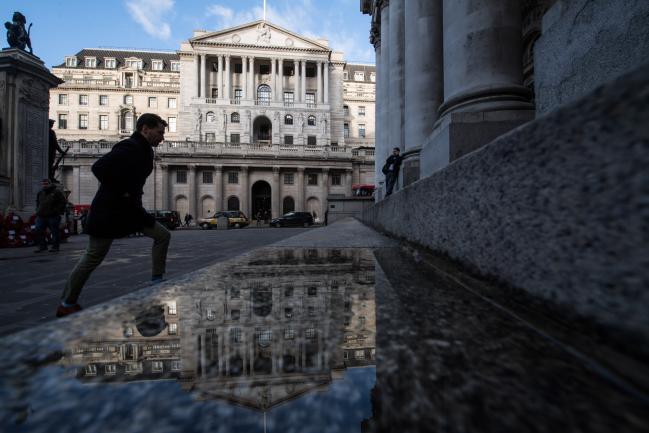(Bloomberg) -- There’s at least one looming job vacancy that Prime Minister Theresa May’s government can’t afford to get wrong.
The Bank of England will need a new governor in 18 months, when Mark Carney steps down having guided the economy through Brexit so far. Though he’s been controversial at times, the U.K. will need a safe pair of hands to take over and ensure stability for banks, consumers and businesses as the nation deals works through its departure from the European Union.
If Carney’s own appointment is the blueprint, a successor could be announced late this year. A Treasury spokesman said recruitment will begin in “due course.” Speculation has already begun on who will take over, with Andrew Bailey, the head of Britain’s financial regulator, a unit of the BOE, seen by economists as one current favorite.
With the U.K. due to exit the EU just three months before Carney departs, the appointment will face extra scrutiny because he was frequently accused of promoting an anti-Brexit view. There’ll also still be a transition period to work through -- unless the U.K. quits with no deal -- and any number of issues that could hit confidence and the economy.
Brexit Football
The new chief, who will ultimately be appointed by Chancellor Philip Hammond, risks becoming a political football in the Conservative Party’s internal struggles over Brexit. They may also have to work with their potential successors from left-wing Jeremy Corbyn’s Labour Party, who have suggested the BOE is out of touch and that some of its functions should move to Birmingham.
“It takes immense talent to juggle all the elements of the role,” said James Rossiter, an economist at TD Securities in London and a former BOE official. “There’s not a lot of people with that. It will be a challenge.”
Carney’s experience gives a foretaste of what is to come. The Canadian steered the three-century old institution through choppy waters both before and after the vote, first cutting, then hiking, rates and repeatedly clashing with pro-Brexit lawmakers over his views on the likely impact of leaving the EU.
The bank, which has never had a female governor, has also come under fire for a lack of diversity in its in top roles, particularly in gender. Nicky Morgan, who oversees the committee that will confirm the appointment, said that when a shortlist is eventually drawn up, there “should be a diverse field.”
Safe Hands
So while a woman who was in favor of, or at least neutral on, Brexit would seem the most politically expedient choice, the current list of apparent candidates seems to err more toward continuity than revolution.
Bailey, the BOE’s former chief cashier and current head of the Financial Conduct Authority, is seen as a leading replacement for Carney, while Dave Ramsden, a former Treasury official who joined the MPC last year, is another favorite. Deputy governors Ben Broadbent and Jon Cunliffe are also seen as contenders.
The front-runner tag hasn’t always been an advantage for contenders for the governorship. As Mervyn King approached the end of his tenure in 2013, then-Deputy Governor Paul Tucker had been widely seen as the natural successor, before the Libor scandal knocked him out of the running.
This time round, one possible candidate has already fallen by the wayside. Charlotte Hogg, newly appointed to the MPC and seen by some as a potential favorite for the role, resigned last year after the Treasury Committee criticized her for failing to disclose a potential conflict of interest.
For all the speculation that will mount in coming months, the likely winner may be hard to identify.
Last time round, Carney kept himself out of the early betting, signaling that he wasn’t a candidate. Asked on the BBC in August 2012 whether he would be interested, he said he was “very focused” on his current posts and would be “interested in who they pick” to replace King.
Asked whether his answers meant “a no or a never consider the job?” he said: “It’s both. How’s that?”
